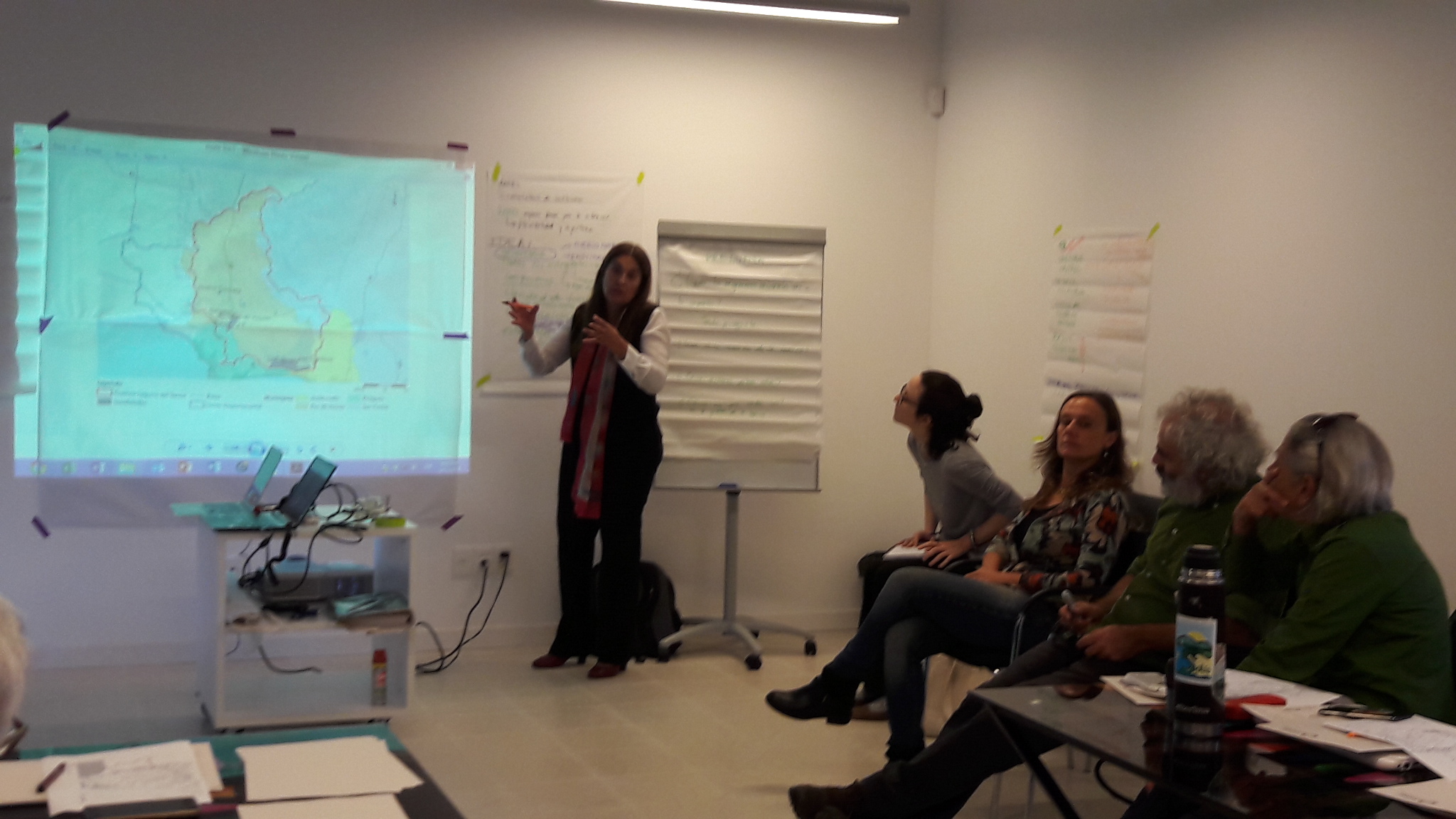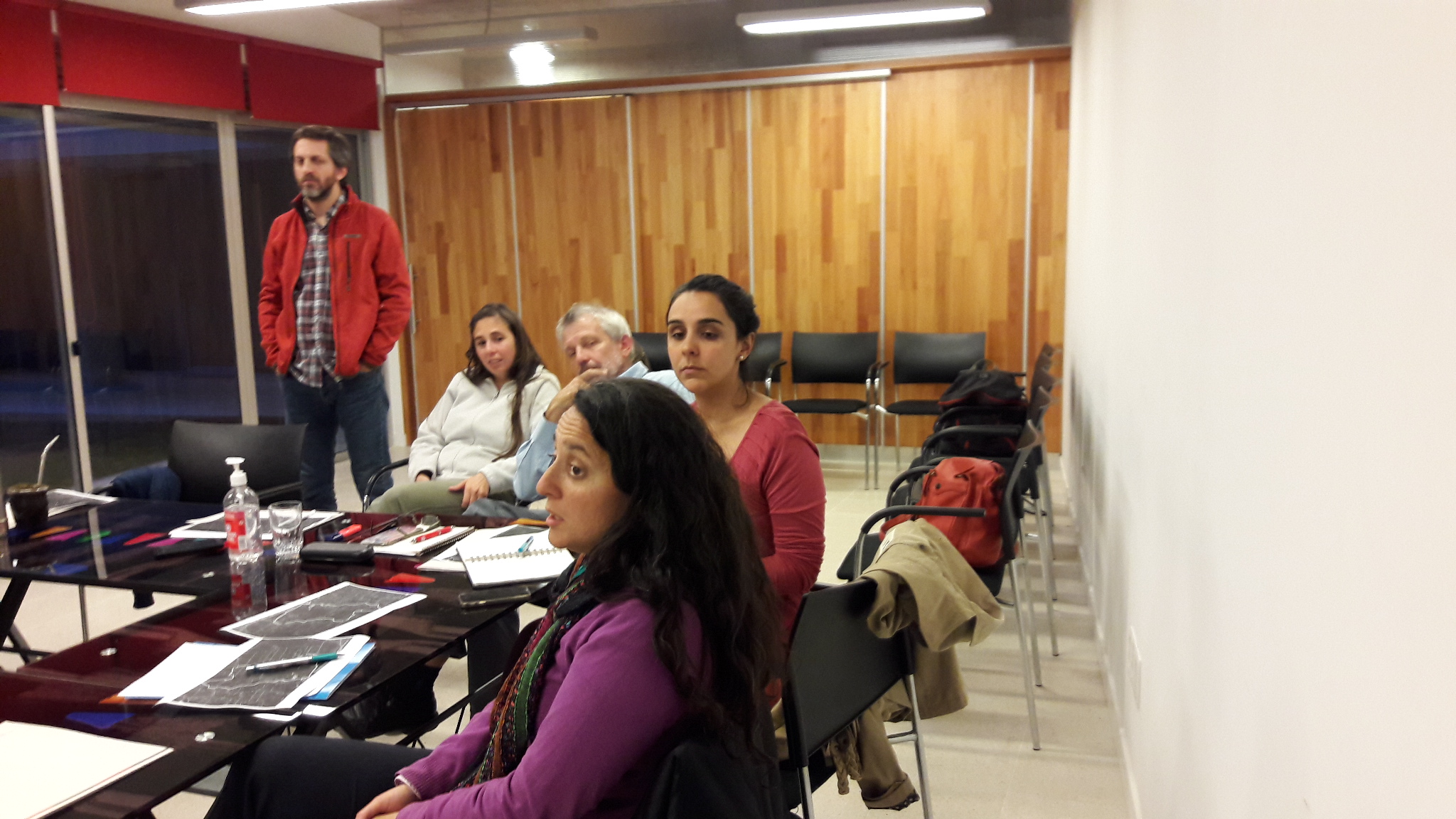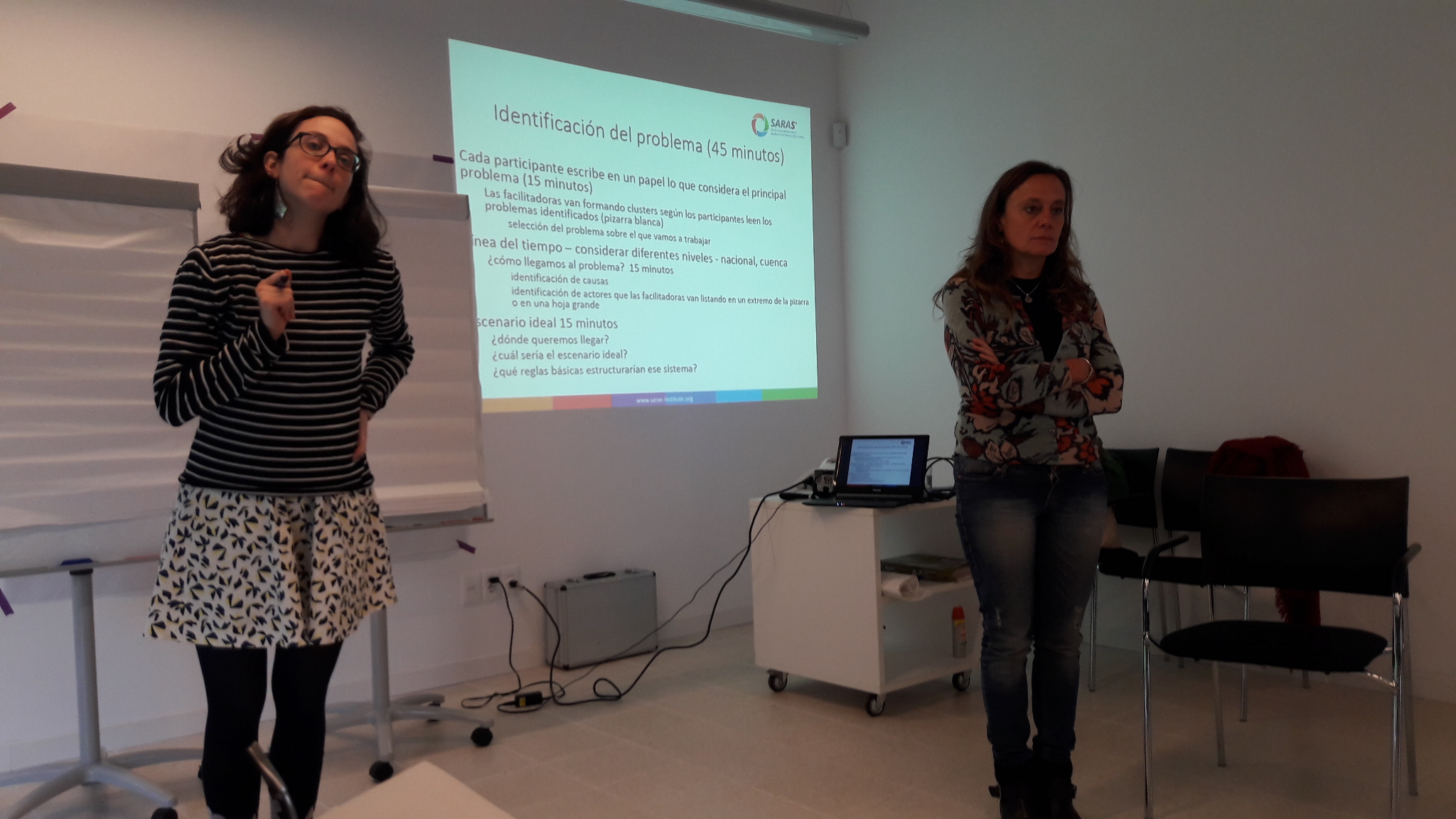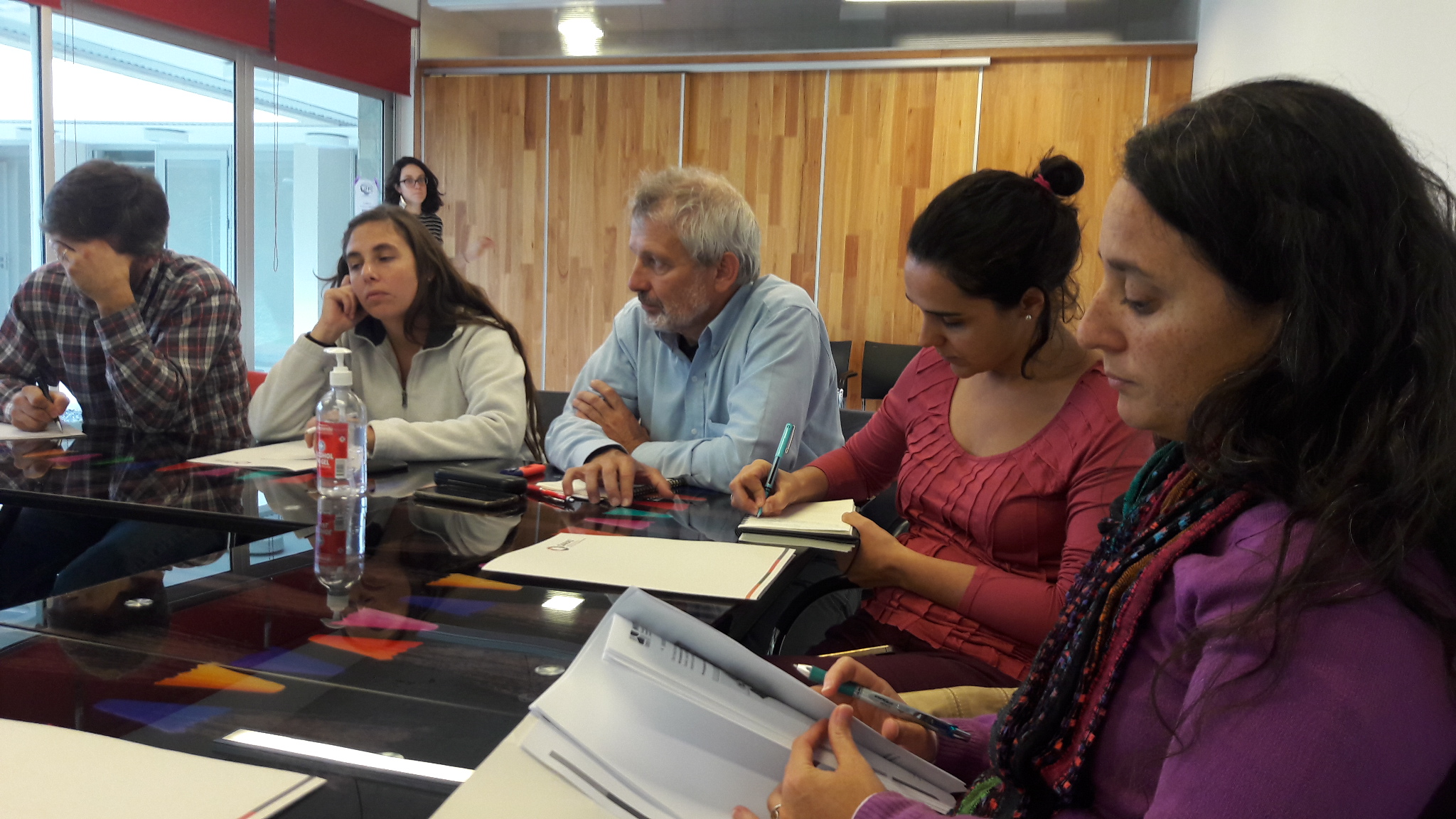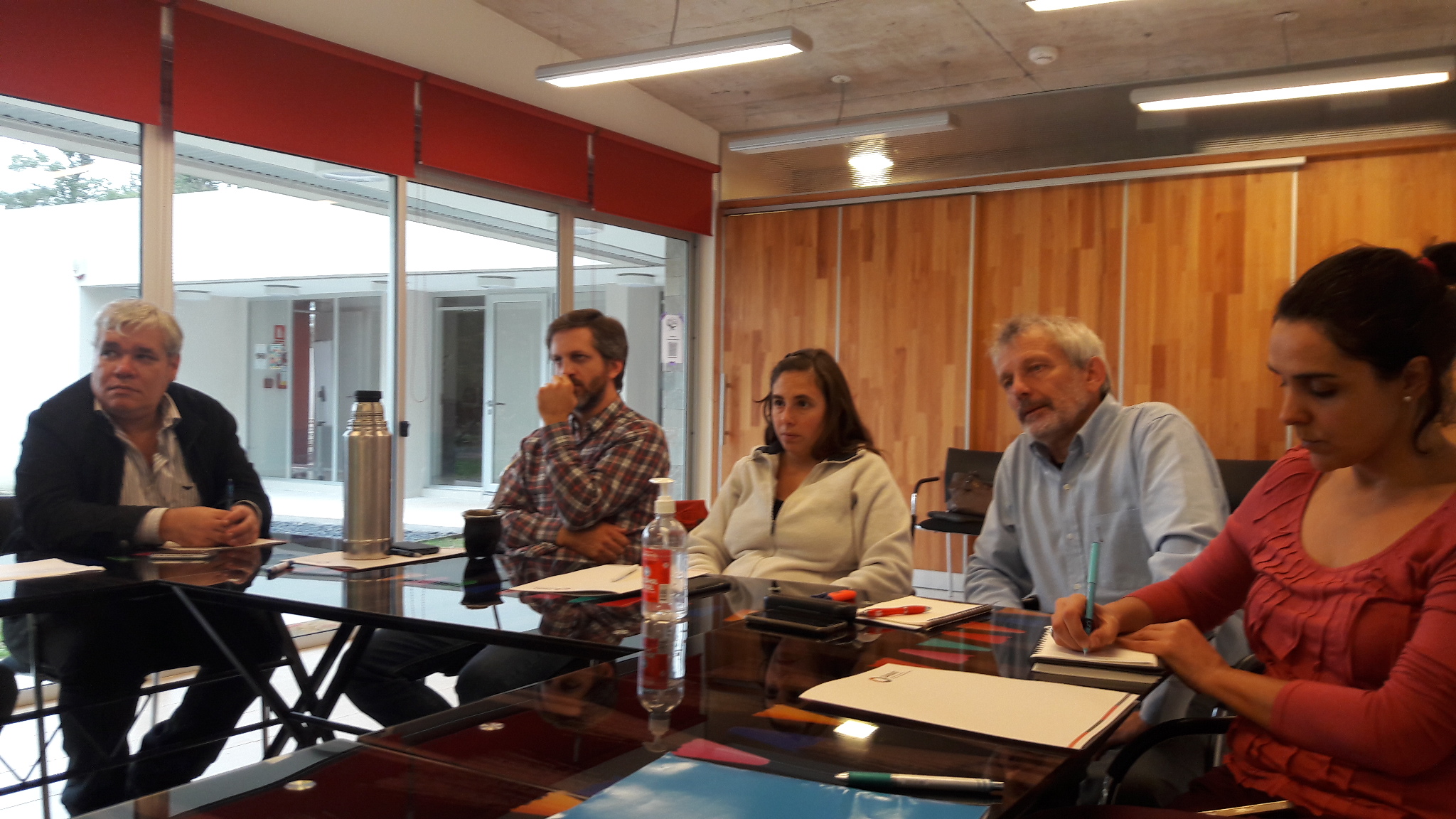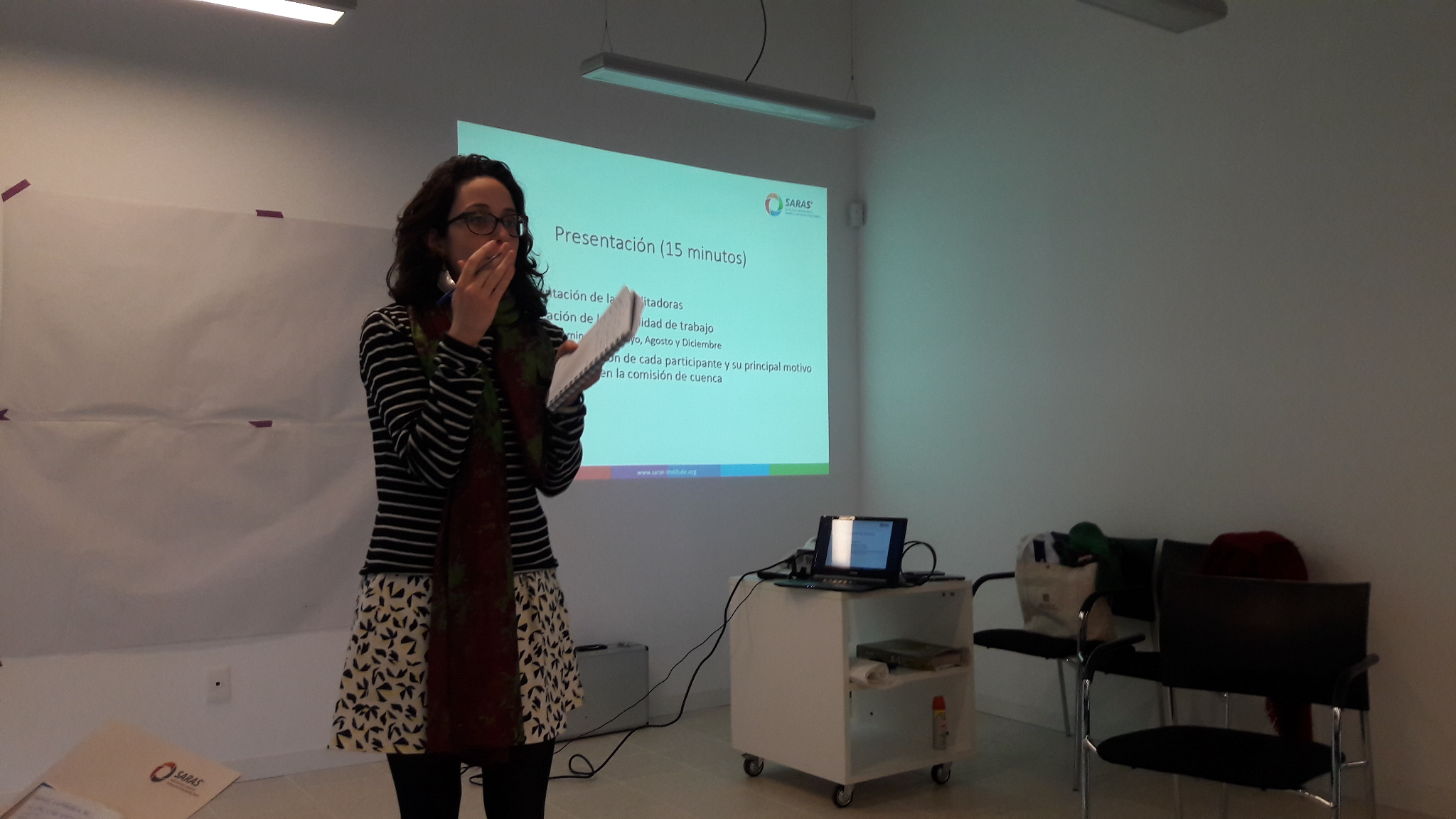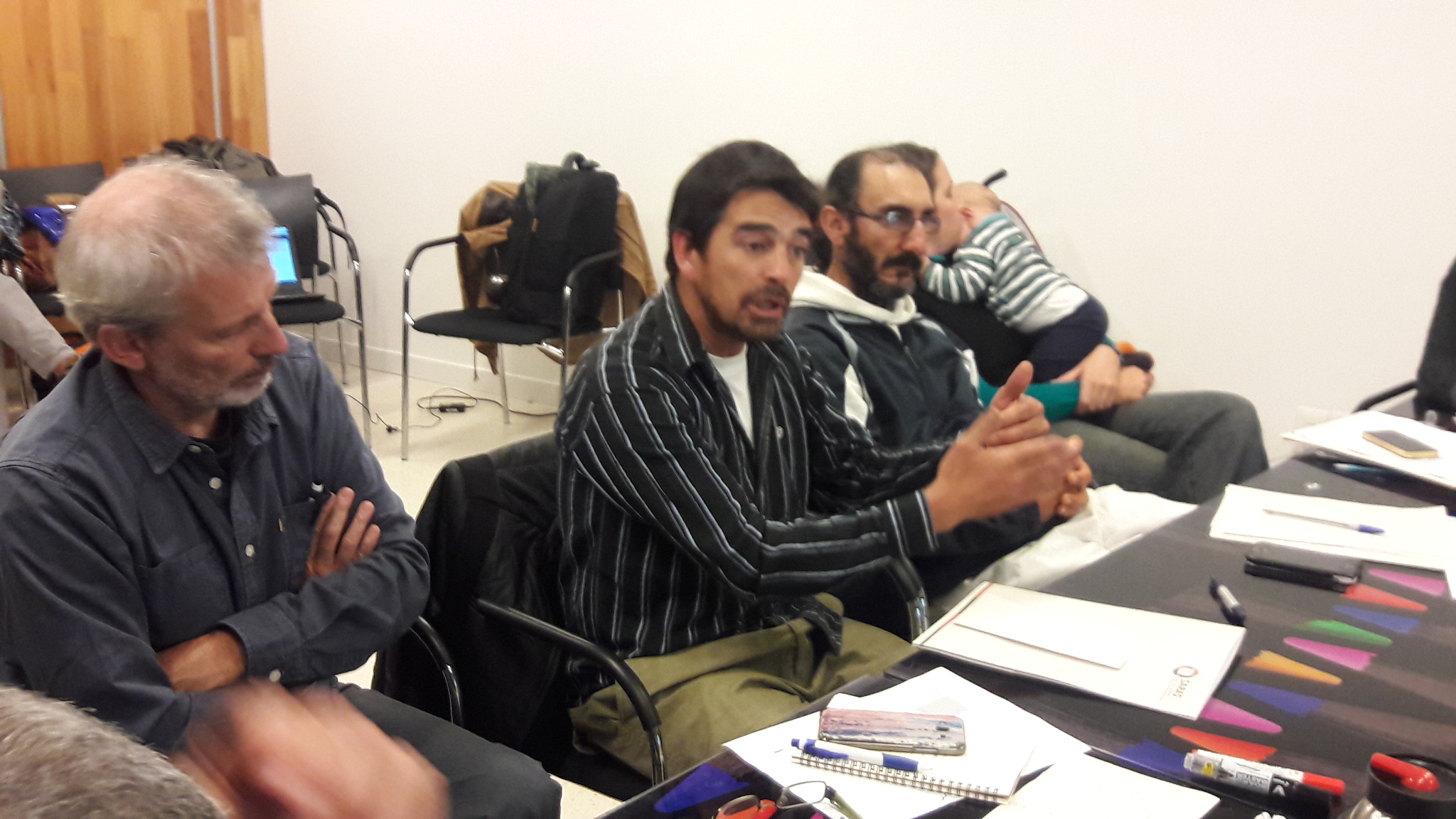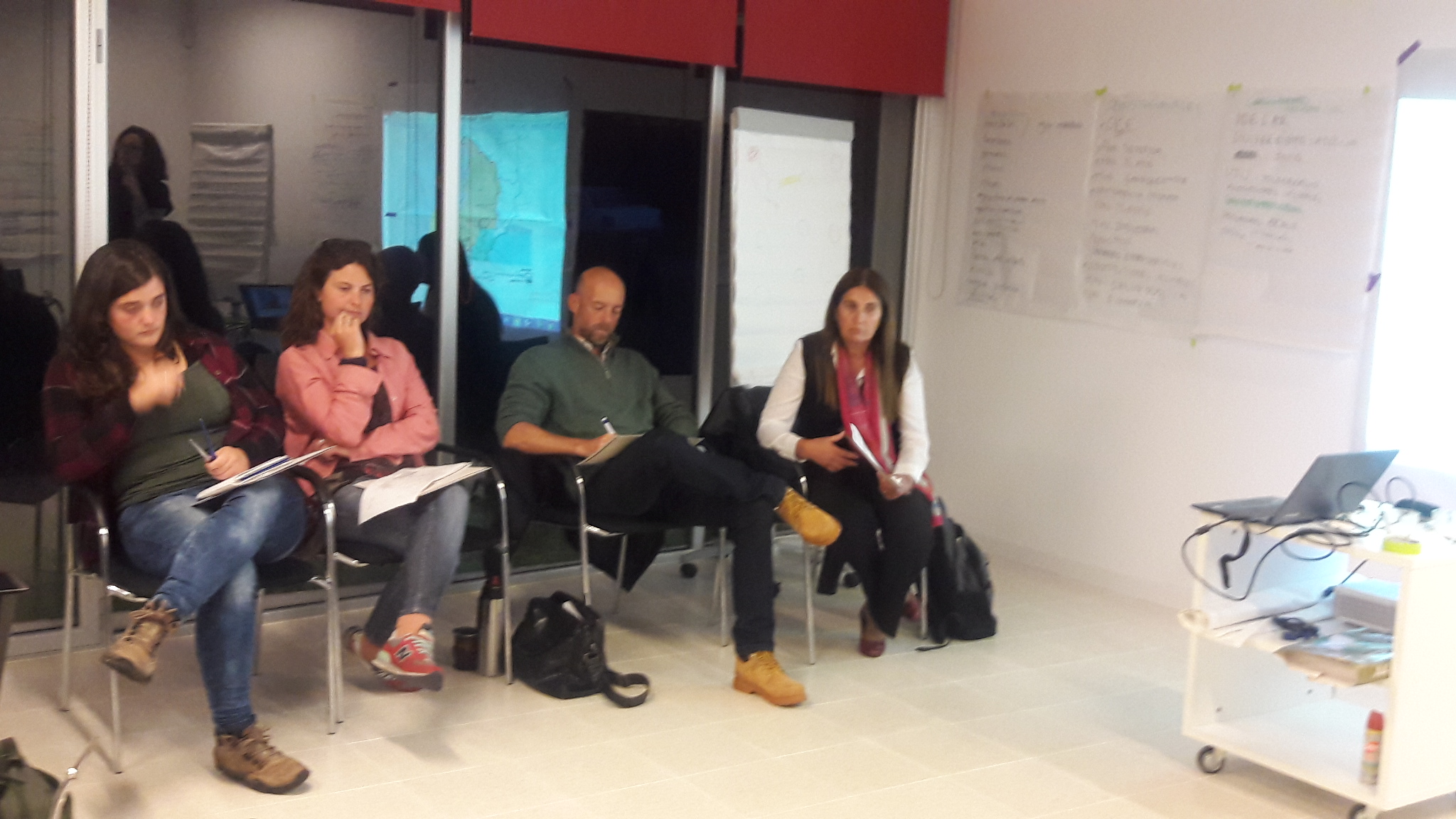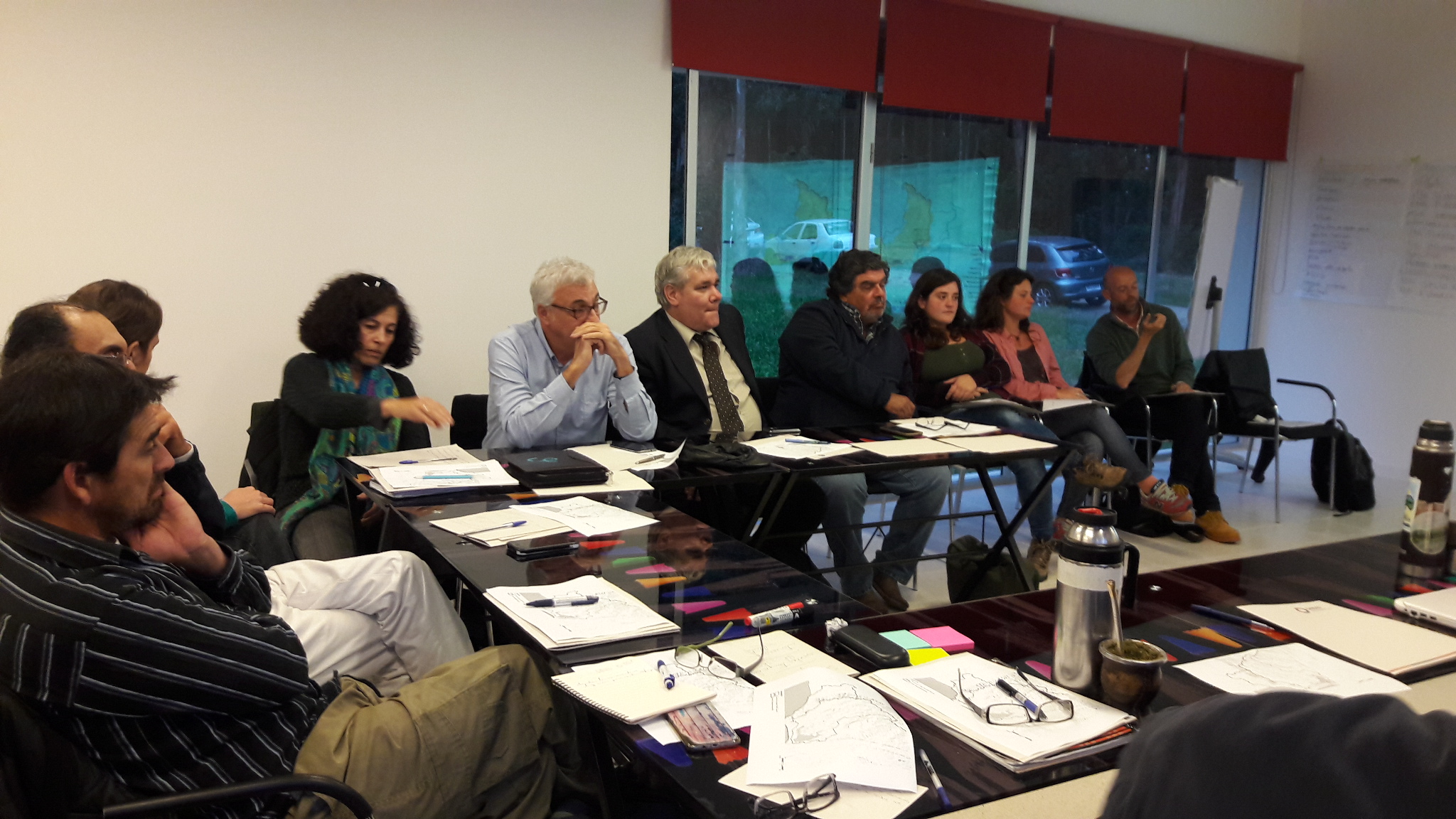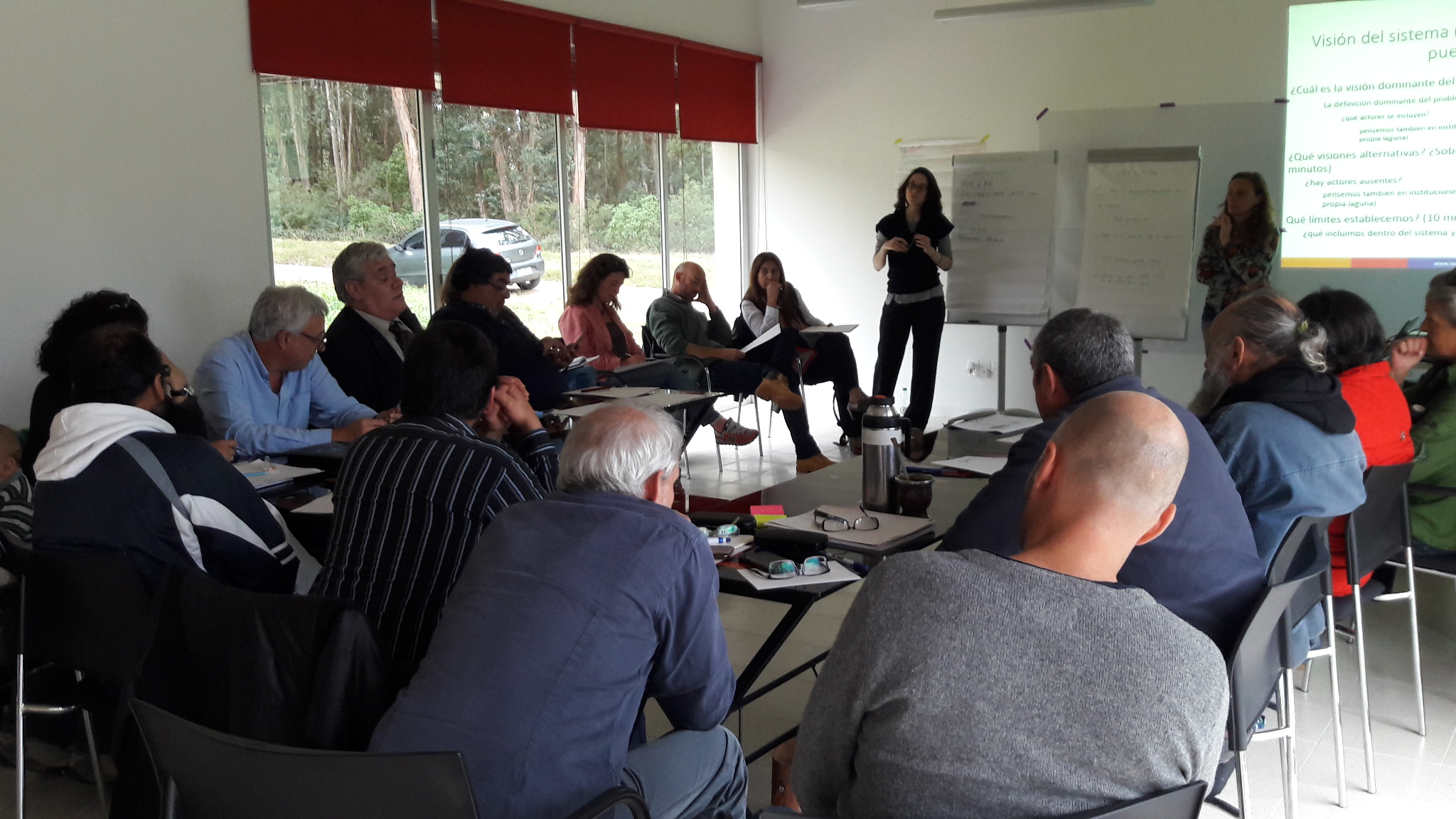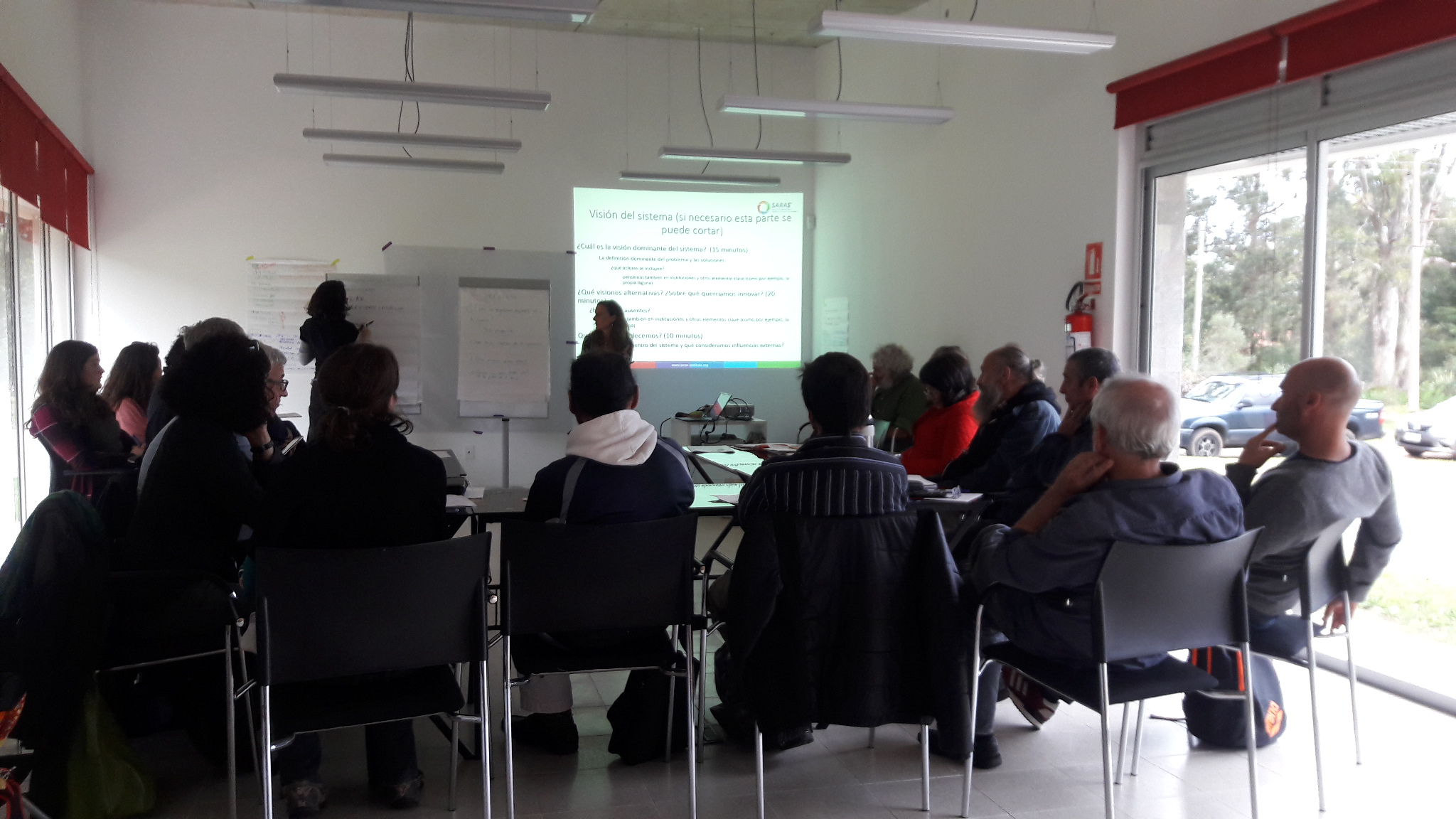Stockholm Resilience Center expert facilitates workshop for basin commissions at SARAS
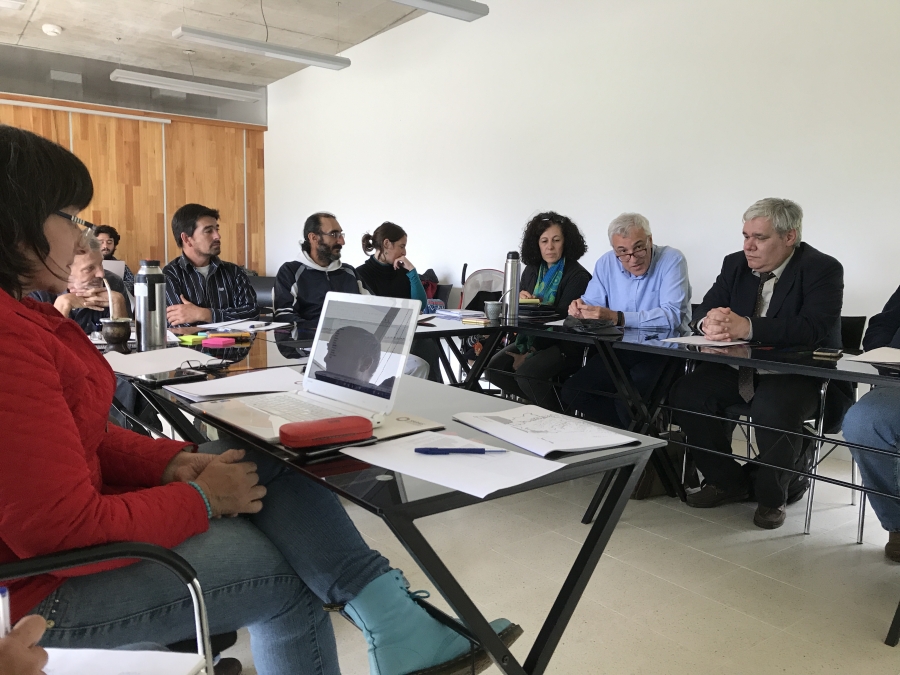
A workshop on Instruments for Water Co-management: network methodology tools was conducted by researchers María Mancilla García (Stockholm Resilience Center) and Cristina Zurbriggen (University of the Republic of Uruguay) on May 11 & 12, 2017 at SARAS Institute. The target audience were members of the Basin Commissions of Laguna del Sauce and Laguna del Cisne.
The general objective of the workshop’s first session (the other two to be held before the end of the year) was to identify current challenges and be able to advance the agenda of basin commissions, come up with strategies and determine the appropriate tools for their implementation.
The course was designed based on network methodology, which explores how different players and institutions exchange information and the impact of doing so, as well as the relationships underpinned by their influence on water management. Work was conducted with the use of Net-map methodology, which enables reconstructing decision-making networks and information exchange and influence developed on a biophysical representation of the territory.
This first meeting was basically aimed at working on the institutional context of the commissions. The objectives of the next sessions will be to share other countries’ experiences and assess necessary changes for the commissions to move forward. Lastly, the workshop will make a final evaluation on the strategies and implementations discussed.
María Mancilla García
Researcher at the Stockholm Resilience Center. Works on public policies and institutions for water management in Latin America. Conducts research on the dynamics of players who have different visions on water management, and how these players mobilize institutional spaces to advance their agenda. In addition to the objective of understanding the dynamics, her role is to produce inclusive public policies and participatory institutions aimed at ensuring the resilience of socio-ecological systems. María obtained her doctorate from the University of Oxford, where she worked on pollution in Lake Titicaca between Peru and Bolivia. She has a background in political science and environmental economics.
Cristina Zurbriggen
PhD in Political Science from the University of Eberhard-Karks in Tübingen, Germany. Currently a professor at the School of Social Sciences of the University of the Republic of Uruguay, and a member of the National System of Researchers, Level II (since 2009). Previously, Director of the Latin American School of Social Sciences (FLACSO) in Uruguay (2009-2012). She has been a visiting professor in Mexico, Spain, Ireland, Argentina, Colombia, Mexico, Canada, England and Germany. Her research includes governance, policy networks and sustainable agriculture (meat traceability, soil erosion, water sustainability). She is currently interested in innovation labs, co-creation methodology and other system methods to study the future of complex public affairs. Member of the Co-Creative Capacity Pursuit funded by the National Socio-Environmental Synthesis Center (SESYNC) in Maryland, USA.
For more information on the course click here
